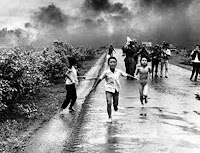Homeless young man: "I need some help."
Me: "OK, is today the day to start getting help?"
Homeless young man: "I need some counseling."
Me: "We can do that. Is today the day?"
Homeless young man: "I have no money."
Me: "What if finances were not a problem? Is today the day?"
Homeless young man: "I don't know."
Me: "What if the counseling, that you want, did not cost you a dime? What if we worked around your schedule? What if we helped you take the first step to wellness? Is today the day?"
Homeless young man: "Hmmmmm"
Me: "Do you want to be well? Is today the day?"
Homeless young man: "Ok, I'll call . . . tomorrow."
Me: "But not today?"
Homeless young man: "Yeah, I'll call."
I guess there are those in need of wellness, yet they resist the opportunity to get help. Apparently, the cost of wellness (Self-awareness, time, money, energy, effort, etc.) is something they resist.
Perhaps, the man Jesus encountered realized that if he was well, he would have to work. Staying in bad health for this man had advantages. People responded to his situation with donations. If he was well, no more handouts.







